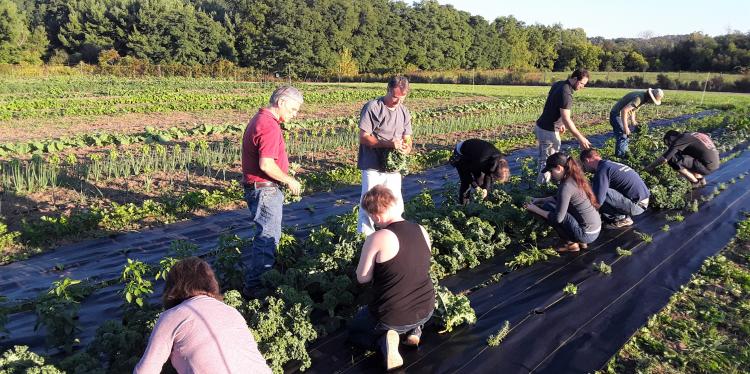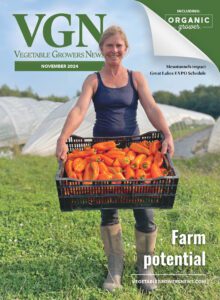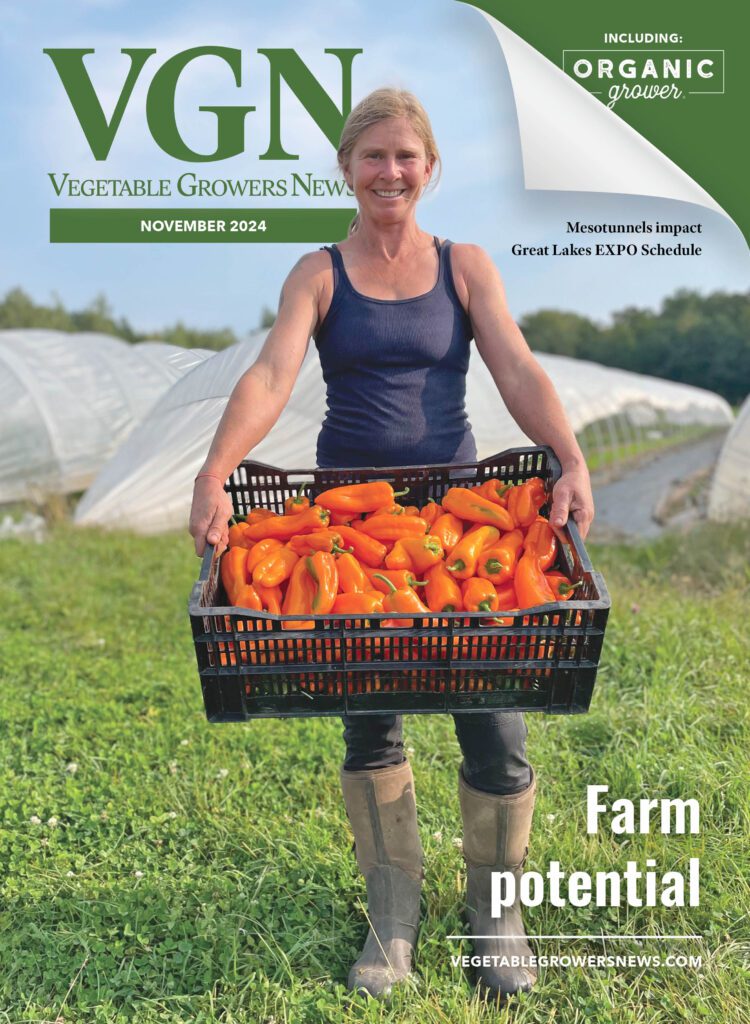Aug 2, 2021Preparing the next generation of beginning and aspiring farmers
Rich Woodbridge is the agriculture business management educator at Cornell Cooperative Extension (CCE) Niagara County. He developed and runs the Beginning Farmer Training Program, now entering its third year.
What kind of education or experience has prepared you for running the Beginning Farmer Training Program?
Like many new farmers, when I got started, I was a generation removed from farming. I didn’t grow up surrounded by agriculture, but I would visit my grandmother’s farm in Lockport, New York. That farm, McCollum Orchards, had been in the family since 1827. The rich history and wild nature of the property sparked a lifelong curiosity about the farmers in my family, but I never expected I would eventually live there and turn it back into a productive farm again.
I spent much of my early career in the field of market research and rural economic development. By 2010 I was working in southern India for an economic development think tank where I spent time with farmers in remote villages. It was there that I was really exposed to day-to-day farming and some of the hardships that farmers face trying to get their products to and from market and how to get paid a fair price for their efforts.
When news came that my grandmother had passed away and that the fate of that old family farm was in limbo, my wife and I returned to the states and visited Lockport to pay our respects. It had been years since we had been back to the farm, but something about it piqued our interest and we decided to move to Lockport and turn it back into a working farm again – despite not even knowing where to begin.
Our first step was contact CCE for help figuring out where to start. My wife and I took every class we could find, read numerous farming books, reached out to local farmers and organizations, and scoured the internet for resources. We then decided to turn the property into a market farm. Ten years later, we now run a popular 150-member CSA vegetable program and raise produce year-round for markets and restaurants.
When CCE approached me about creating a course for beginning farmers in the area, I jumped at the opportunity. It gave me the chance to create a program that would have helped me when I was just getting started. A chance to teach beginning and aspiring farmers both the business and science sides of farming, as well as gain that needed hands-on experience that is so important when getting started.
Why is the Beginning Farmer Training Program important?
The program inspires and prepares the next generation of farmers to address the pressing issues of local food access and farmland preservation in Western New York and our country. As I see it, the issue is two-fold: most beginning and aspiring farmers do not come from farming backgrounds. Without hands-on experience or institutional knowledge that comes from growing up on a farm, it is hard for outsiders to find employment on farms or to start one. On the other hand, the average age of farmers in the U.S. is 68. In the upcoming decades, there will be a massive turnover or sell-off of prime farmland that could potentially be transitioned to a cadre of prepared next generation farmers.
The Beginning Farmer Training Program accelerates the learning curve of beginning and aspiring farmers, giving them valuable connections, resources and the know-how to take their business idea to the next level. Most importantly, it can help them to avoid costly startup mistakes and to create a solid foundation for their farm business.
How did you adapt the program delivery to meet the challenges created by the COVID-19 pandemic? What new opportunities emerged?
In 2019, the program included 100 hours of hands-on field work, numerous guest speakers and farm tours. We demonstrated seed starting in our greenhouse and turned an acre of CCE’s property into a field lab market garden, so that participants could learn hands-on skills.
In 2020, we needed to shift the program to an online format, as we could not do the hands-on portion. I recorded daily activities on my own farm and made video tutorials, shooting various segments on weed identification or how to properly pack greenhouse trays, edit them and incorporate them into a live online presentation.
Our initial setback turned into an opportunity. I offered weekly online classes on several beginning farmer topics, and to my surprise, the number of participants kept growing, with participants from across New York, from other states, and even a participant from Tanzania. The ongoing pandemic made it clear that there is a strong interest in online beginning farming classes, as well as in-person instruction.
This year, what is the program format?
For 2021, I plan to offer the in-person hands-on training with COVID-19 safety guidelines in place, while continuing to film more instructional videos so that we can create an online version of the course.
What gives you hope for the future of your work, and how do you see the program developing?
I am continually amazed and inspired by the ingenuity of farmers and the exploding interest in farming as a profession. No matter what challenges they face, farmers are incredible problem-solvers. The renewed interest in locally grown food, knowing where food comes from, and innovative small farming practices has only accelerated during the pandemic.
My goal is to prepare the next generation of new farmers so that they can steward our region’s farmlands and continue to innovate and create profitable farm businesses that support our region’s farm families and the local food economy alike.
I am now receiving calls from aspiring farmers from across New York state interested in taking the Beginning Farmer Training Program. One problem is that it’s only offered here in Niagara County. The hands-on learning component is crucial to a full understanding of market farming, so I hope to partner with other CCE offices that could teach the hands-on portion of the class, while participants access a digital Beginning Farmer website full of pre-recorded presentations, know-how videos and regional resources. It would be a hybrid learning course, that could be customized regionally. I think it has a lot of potential and look forward to helping this program expand its reach.
– Cornell Cooperative Extension staff















